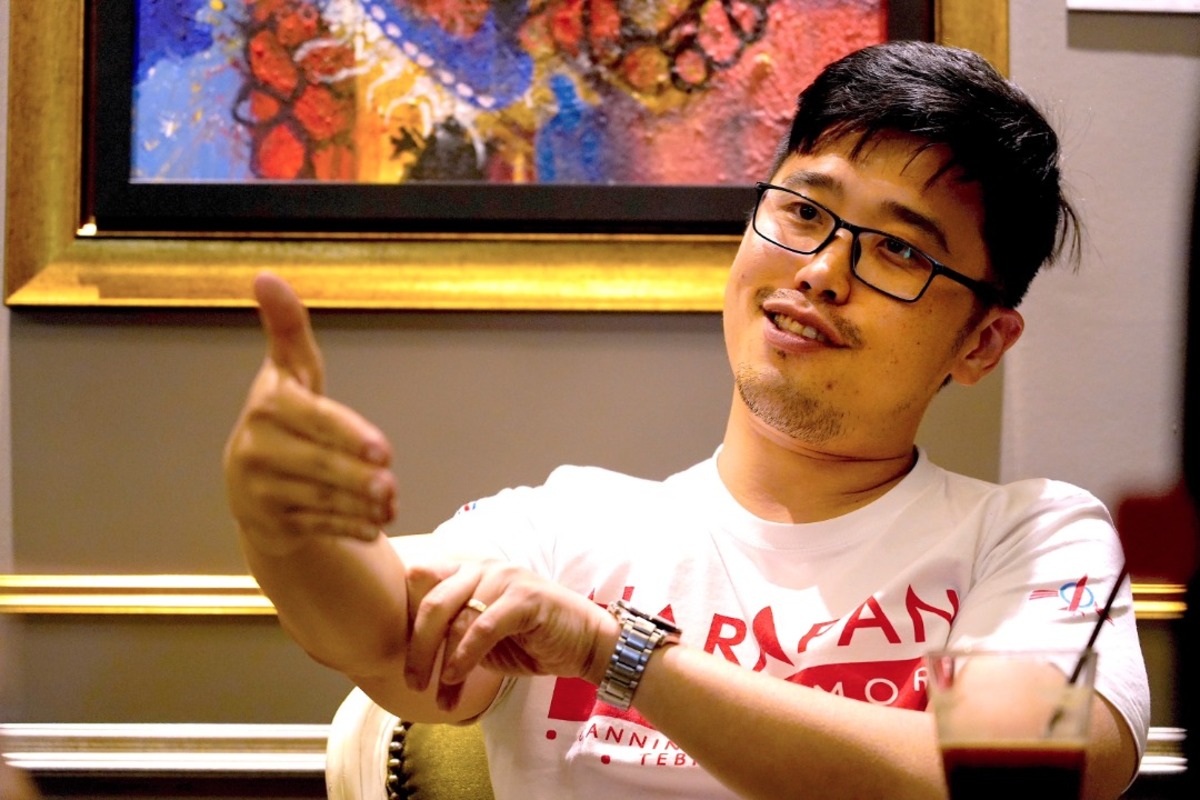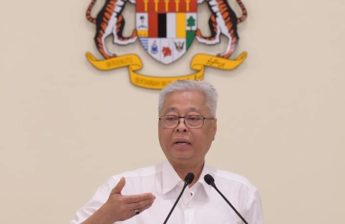IPOH, Nov 15 – Pakatan Harapan’s (PH) Ipoh Timor candidate Howard Lee Chuan How has called for reform of social care that he said must be provided by the government in a looming care crisis.
Malaysia’s current public health care system mainly provides medical care, as past governments have left social or aged care to the private sector and non-governmental organisations (NGOs), even though the country has officially reached ageing status this year, with a projected 7.3 per cent of the national population aged 65 years and older. This is equivalent to some 2.4 million people.
“In order for us to be just in time to solve the care crisis, the agedness crisis, the ageing crisis, for us to be just in time, we need to just do it just in case and ‘just in case’ can only be achieved if we start now. Not in three years’ time, not in five years’ time because Perak is already an ageing state. We are technically an ageing nation,” Lee told CodeBlue in an interview here yesterday.
“The private sector does not yet have the capacity to have the reach and does not have the capacity to really invest in allowing those who are right at the bottom of the social and income strata of society to be able to be delivered care.
“Go to Kg Baru Pasir Pinji, go to Kg Simee, go to Kg Seri Kinta, Kg Pasir Puteh in Tebing Tinggi, where you have high concentrations of people who are at the bottom strata of income of the society and they are faced with a care crisis domestically.
“When young people are forced to make a choice between caring for their parents and continuing their studies or their career – if it’s not the government that intervenes to stop them from having to make that choice, do you think the private sector would do that? I don’t think so.”
PH’s “Tawaran Harapan” manifesto for the 15th general election touts the creation of a care economy, with the planned tabling in Parliament and implementation of a National Care Economy and Ageing Community Preparedness Plan (SiagaJaga).
Lee, who is also a DAP central executive committee member, described the SiagaJaga plan as equivalent to five-year Malaysia Plans (RMK).
“Putting care into something as significant as a national physical rolling plan and RMK, that for me, is the largest form of reform anyone could look at.”
The 39-year-old former Pasir Pinji assemblyman, who is making a maiden run for Parliament in the DAP stronghold of Ipoh Timor, explained that the SiagaJaga plan would be kickstarted by an RM10 billion allocation over five years to build capacity for professional caregiving.
“Once the capacity is there, the training is there, the talent is there, the expertise is there, then [we] enter the kind of slightly more laissez faire, competitive edge, bringing in innovation progress, part of the private sector coming into take over, perhaps.”
Cross-Ministerial Funding, Existing Untapped Funds For Care Economy
Lee mooted cross-ministerial funding for the RM10 billion proposed expenditure for the National Care Economy and Ageing Community Preparedness Plan to build capacity and training, as well as to increase the number of care facilities and infrastructure.
He suggested that the RM10 billion government allocation could be split across three years, with the money mainly coming from the Human Resources Development Fund (HRDF) under the Human Resources Ministry (MOHR) and dividends from ProtectHealth Corporation, a fully-owned company by the Ministry of Health (MOH), for capacity building and training in the first year.
As the care economy plan would require education to produce the needed human resources in caregiving, Lee said allocations for TVET education could come from the education or higher education ministries, or from a new TVET Ministry if one is set up.
PH’s care economy plan proposes including one-stop caregiving facilities with child, elderly, and disabilities care in property development requirements, hence there will also be allocations coming in from the Housing and Local Government Ministry and engagements with housing developers, Lee said.
The staffing of these one-stop caregiving facilities with professional caregivers, he said, would have to be addressed by the human resource and education ministries on whether there are enough trained professionals, MOH on the question of home or in-situ care, the Women, Family and Community Development Ministry on child care, as well as local councils and the Fire and Rescue Department on infrastructure.
Communications and promotion of the care economy plan can be funded by a USP Fund under the Communications and Multimedia Ministry, with Lee saying that even though the USP Fund is specifically for connectivity, it can be used for communication purposes.
“So rather than have these big lumps of cash or money or savings, whatever you call it, be there, not deployed, let’s deploy it for something that is urgent,” Lee said.
“When we talk about increase in budgetary allocation, we need to talk about increase in allocation, rather than potong sini, bubuh sini. I’m talking about new deployment – the new deployment of allocation of funds and tapping into existing untapped funds.”
Expenditure would also have to come from the Statistics Department to record and extract data on the levels of instrumental activities of daily living (IADL) in the country to identify incapacitated people in need of care, Lee said.
He added that some funding would need to be channeled from the Economic Planning Unit (EPU) under the Prime Minister’s Department because the care economy plan is “something that’s quite new, something quite unique”.
A ‘Guided’ Market For Affordable Professional Care
Part of PH’s SiagaJaga plan is to build capacity and professionalise the care sector. When asked if he thinks a free market with increased professional caregivers will result in affordable prices, Lee said the market “cannot be free”.
“For decent work, and decent pay for decent lives for health care professionals, the market cannot be free because a free market drives down wages. You like it or not, that’s a fact – at least in the current fiscal conditions in Malaysia,” he said.
“So which do we want? Do we want decent wages and decent livelihoods for health care professionals or do you want a free market? We need a guided market. We need a decent market. We need a just market with just dynamics that is driven by policy, but it definitely cannot be free.
“If it’s free, well, you’re gonna have problems like Hartal, you’re going to have contract doctors,” Lee added, referencing the strike by government doctors in July last year against the contract system.
“The problem behind having contract doctors is they are not paid decently. So we need to ask ourselves this question. Do we want a free market or do we want decent wages for health care professionals? I choose the latter.”
When asked how voters have been responding to his proposals on aged care, Lee said feedback on his campaign trail has been positive.
“And I would even say in some cases, people are excited about what they’re hearing and what they’re seeing,” he said.
Lee noted that with political fatigue setting in after the Sheraton Move in 2020, Malaysians now want to see policy proposals from the three major coalitions – PH, Barisan Nasional (BN), and Perikatan Nasional (PN) – who have all been in government at one time.
“We’re no longer seeing people purely and simply getting excited over political claptrappers in ceramahs,” he said.
“This morning I had an auntie who came up to me and said, you know, for once, someone is putting a focus on the elderly. And for me, that’s quite encouraging.”








